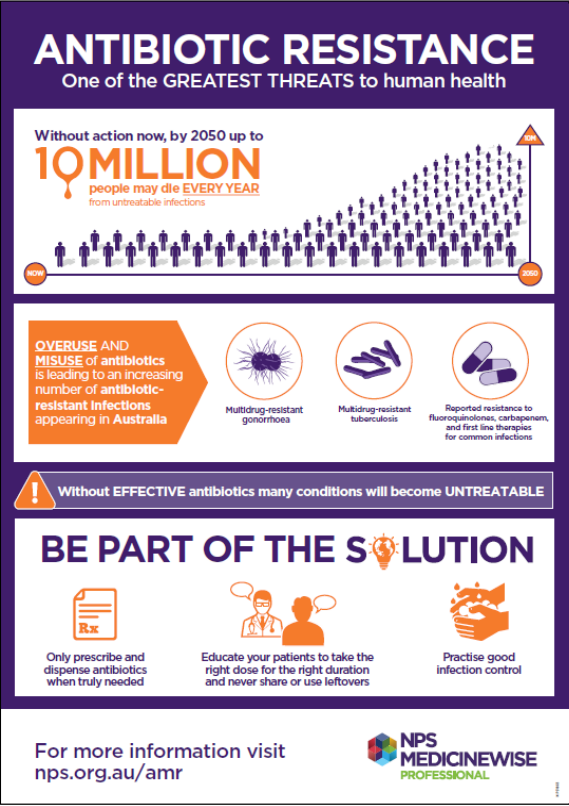
Features from around the world
Nudge vs Superbugs
Just a little bit of healthy competition is all it could take to encourage Australian general practitioners (GPs) to re-examine their habits for prescribing antibiotics and help quell the rising number of drug resistant infections appearing globally.
With antimicrobial resistance (AMR) becoming a burgeoning global health concern, Aussie scientists took a behavioral economics approach to helping address the unnecessary over prescription of antibiotics. They estimated that 208,510 fewer prescriptions would be issued, by simply providing GPs with a personal comparison to their regional peers.
More than 6,600 GPs involved in the study in June, were identified as being in the top 30% for antibiotic prescription rates in their region, and sent one of four carefully-designed letters from the Chief Medical Officer of Australia, Professor Brendan Murphy.
Surprisingly, GPs were likely to reduce their rate of prescription when given information that compared them directly with other doctors.
“You prescribe more antibiotics than 85 per cent of prescribers in the Australian Capital Territory (ACT) region”
The results showed that letters including a comparison to their peers along with a colorful graph to make the comparison more salient was the most successful behavior modifier, reducing prescription rates by 12.3 percent on average over 6 months.
By comparison, the least successful letter in the study was crafted as part of an education campaign on AMR and included two posters outlining what patients and doctors can do to reduce overprescribing of antibiotics and ultimately the reduce the prominence of AMR. This incited reduction of only 1.3per cent on average over the 6 months.
The study, undertaken by the Australian Department of Health and the Department of the Prime Minister and Cabinet, comes after the 2016 joint Public Health England and Behavioural Insights Team study. The original study monitored 1581 GP practices and noticed a 3.3% reduction in antibiotic prescribing when GPs were send a letter from the UK CMO stating that they were their rates were ‘higher than 80% of practices in its NHS Local Area Team’.
The study notes a need for further endeavors of this nature, given Australia sits uncomfortably above average in terms of antibiotic consumption, with 23.5 Defined Daily Doses (DDDs) per 1000 compared to the OECD average of 20.6.
“It is our joint responsibility to change the way we use antibiotics so that our next generations can continue to benefit from these important medicines,” said Australia’s CMO, Professor Brendan Murphy, as part of the published study.
In 2015, Australia released its first nationally coordinated, multi-sectoral response to AMR in Australia, the National Antimicrobial Resistance Strategy 2015-2019, which recognizes that concerted efforts are needed in Australia to reduce the inappropriate use of antibiotics across all sectors.


